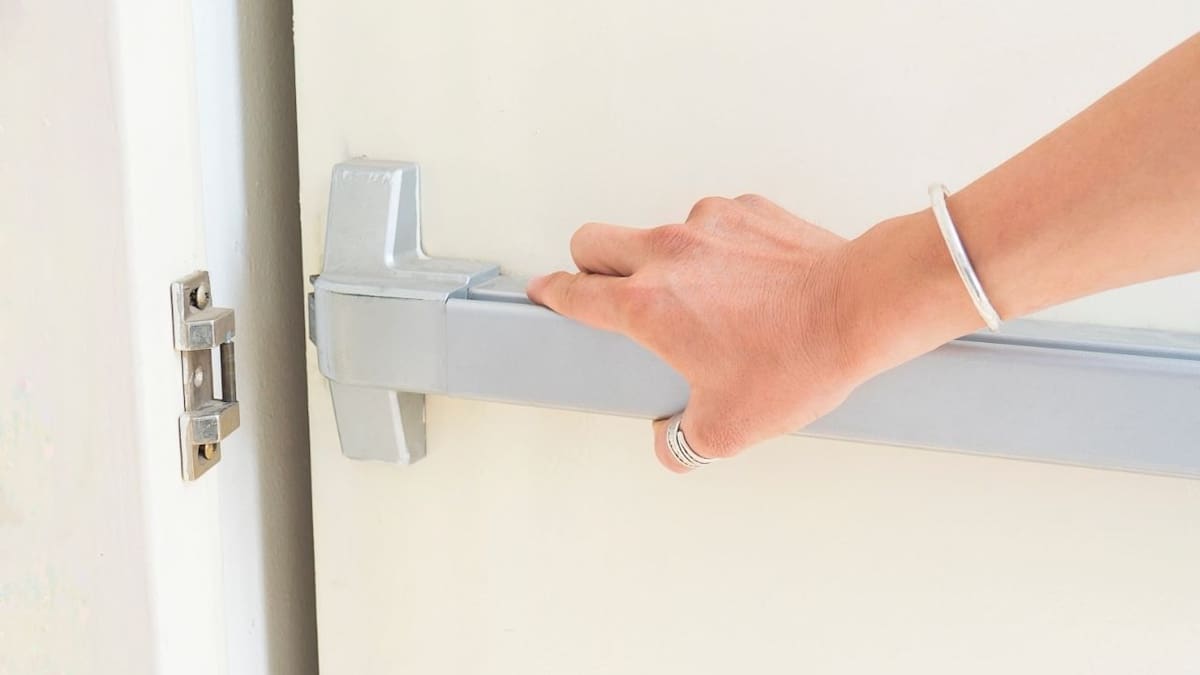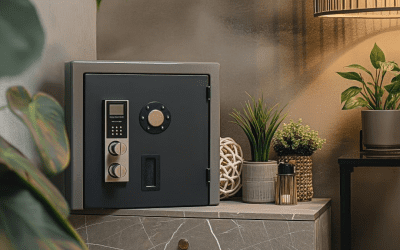When most people think about door hardware, their minds go straight to locks, handles, or even smart security systems. But there’s one critical component quietly doing the heavy lifting – the door hinge. These small pieces of hardware are responsible for ensuring your doors open and close smoothly, stay aligned, and most importantly, stay secure. Whether it’s the front door of a home, the back exit of a business, or an emergency access point, the right hinge makes all the difference.
For professionals like a 24/7 Emergency Locksmith, hinges can either be a minor fix or a major problem. A poorly chosen or failing hinge can compromise the entire door system, leading to misalignment, sagging, or even security risks. On the other hand, a well-selected hinge contributes to the longevity, safety, and overall function of the door.
In this guide, we’ll break down everything you need to know before purchasing door hinges from types and materials to safety standards and real-world applications.
Why Do Door Hinges Matter?
Hinges may seem like small and often overlooked hardware, but they play a crucial role:
-
Supporting the weight of doors
-
Ensuring smooth opening/closing
-
Maintaining security
-
Preventing wear on both door and frame
Especially for emergency locksmiths working 24/7, having hinges that perform reliably under stress, wear, or in urgent situations is essential. A sub-par hinge can lead to sagging doors, misalignment, or security vulnerabilities.
Key Factors to Consider When Purchasing Door Hinges
When purchasing door hinges, here are the essential criteria to weigh:
1. Hinge Type
Different hinges have different functions. Common types include butt/mortise hinges, ball-bearing hinges, spring hinges (which may auto-close), concealed hinges, piano/continuous hinges, strap and tee hinges.
2. Material & Finish
Determines durability, appearance, resistance to corrosion or rust. Materials like stainless steel, brass, bronze, aluminium, steel (sometimes galvanized) all have pros & cons. Finish (polished, satin, plated) matters for aesthetics and protection.
3. Door Weight, Size & Usage
A light interior door needs less strong hinge compared to a heavy main entrance or fire door. Heavy or frequently used doors require stronger, often ball-bearing hinges, or even continuous hinges.
4. Fire Rating / Safety Standards
If the door is a fire door or needs to meet safety codes (e.g. for commercial / emergency exits), use hinges that are rated appropriately. Certifications like CE or UKCA, and specific fire ratings, are important.
5. Hinge Mounting & Number of Hinges
Proper mounting ensures smooth operation. Number of hinges: heavier/taller doors often need more hinges. Also ensuring that the hinge is installed straight (both vertically and horizontally) to avoid misalignment.
6. Maintenance & Longevity
Even a good hinge will need occasional lubrication, periodic checking (for rust, loosening screws). Choose materials and designs that minimize maintenance. For emergency locksmiths who may be called at odd hours, low-maintenance hinges reduce follow-up issues.
7. Security Features
For external doors, safety doors, gates: non-removable pins, tamper resistant screws, or special hinge designs that prevent forcing or prying the door. Security is especially important in emergency locksmith situations.
Types of Hinges & Their Best Uses
Here are hinge types, with where and when each is best applied:
-
Butt / Mortise Hinges: Most common, widely used for standard interior and some exterior doors. Need a recess (mortise) in both door and frame. Good for general use.
-
Ball-Bearing Hinges: Similar to butt, but with ball bearings around the pin resulting in smoother, quieter operation and better for heavier doors or doors opened frequently.
-
Piano / Continuous Hinges: Run the full height (or length) of the door, distributing weight evenly. Ideal for heavy doors, commercial use, or doors with potential for warping/sag.
-
Spring Hinges & Double-Action Hinges: Provide automatic closing, or swing both ways. Useful in fire doors, doors that need to self-close, café doors, or in commercial settings.
-
Concealed / Hidden Hinges: These are not visible when the door is closed; offer sleek, clean aesthetics. Common in modern furniture or interior doors.
-
Tee / Strap Hinges: Decorative and strong; often used in gates, rustic doors, or heavy wooden exterior doors.
Matching Hinge to Scenario – Insights for Locksmith Situations
Because locksmiths are often called in urgent situations (broken locks, off-kilter doors, damaged hinges), here are specific considerations:
-
Emergency Response & Access: A locksmith may need to remove or rehang doors – choose hinges that are accessible and maintainable. Hinges with removable pins or lift-off designs help.
-
Durability Under Abuse: Doors in high-use areas or those opened/closed roughly need stronger hinges (like steel or stainless steel, ball-bearing).
-
Weather Resistance: If the door is exterior or exposed to moisture, use corrosion-resistant materials. Stainless steel (especially marine grade), or properly treated steel.
-
Quick Fixes: Locksmiths may need to replace hinges on short notice; standard sizes/types are easier to source and install. Uncommon hinge types may delay emergency work.
-
Security: For doors that are external, or for security doors, hinges that resist tampering are vital. Non-removable pins, hinge side being inside/outside, etc.
How a 24/7 Emergency Locksmith Benefits from Good Hinges
Since locksmiths who offer 24/7 Emergency Locksmith services are often dealing with sudden issues under pressure, here are ways quality hinges can reduce trouble:
-
Fewer callbacks because of door sagging, misalignment, or broken hinge pins
-
Faster repairs / replacements because standard high-quality hinges are used (stocked in vans or sourced locally)
-
Reduced risk of damage to door frame or lock mechanism due to incorrect hinge causing strain
-
Better customer satisfaction: smooth operation, secure doors, fewer issues
Common Mistakes to Avoid
-
Choosing hinges based on design alone, ignoring weight/capacity
-
Using interior hinges for exterior doors as this leads to corrosion, fading, deformation
-
Underestimating the number of hinges that required too few hinges and excess load per hinge
-
Ignoring finishing/coating – bare steel in damp areas rusts fast
-
Not checking fire safety ratings when needed
Conclusion
Choosing the right door hinges is far more than just a finishing touch – it’s an investment in safety, security, and long‑term reliability. The type of hinge you select, the material and finish, the number required, and the quality of security features all add up to how well your door performs especially in demanding scenarios or emergency situations. For professional locksmiths working round‑the‑clock, like those in 24/7 Emergency Locksmith services, the stake is high: a good hinge means fewer failures, fewer callbacks, and better protection for clients.




